On Saturday, January 13, most of our team travelled (in one large van/bus + three cars) to visit a church and participate together in our first day of ministry. We would be training and equipping the church and then going out with them into their surrounding community to do outreach.
[One of our many bus rides; not from this day]
The training typically takes about one hour for each topic, so if we train healing, evangelism, and Bible study, that’s about three hours. Some churches ask for the full training, others ask for training in perhaps one or two of the three areas. (And one of our leaders, Wayne Broadland, has begun also to offer training in dealing with trauma, of which there is a fair bit in Colombia.) The training combines teaching and modelling with practice – what we call ‘activation,’ which is actually getting people up and involved in doing the ministry themselves.
As I shared in my first post, the vision is to empower people from the bottom up, not simply to do a performance from the top-down that keeps people awestruck by and dependent on the gringo (white) missionaries and the translators. Anyone can do this ministry, because in Christ all believers are called to be ‘priests’ and all ministry is a participation in what the Spirit is doing (so, a delegated ministry from Christ), not something we do in our own power, knowledge, and authority.
Since most of our team was present at this one church, only a few of us could lead the training. Yet it was a good opportunity for all, after our own training day within the safe confines of our hotel, to see it done live on the mission field and to interact with people as they learned and tried it themselves.
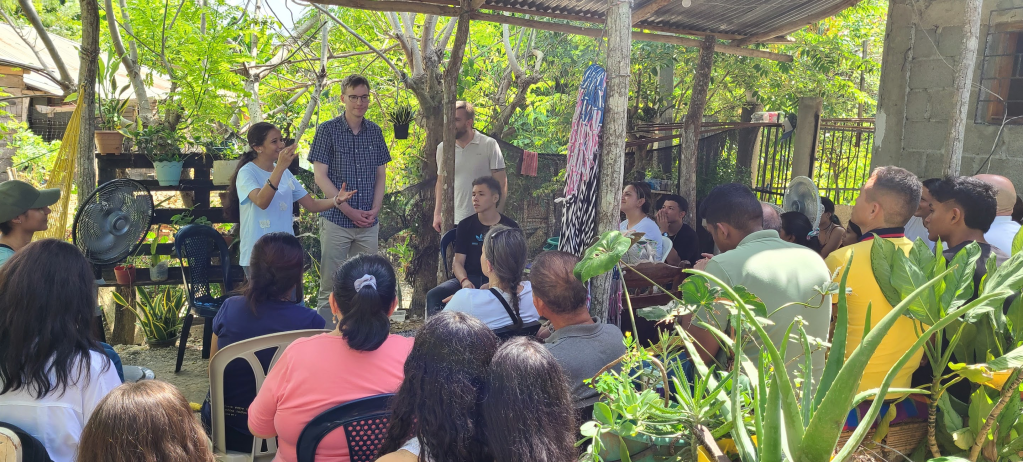
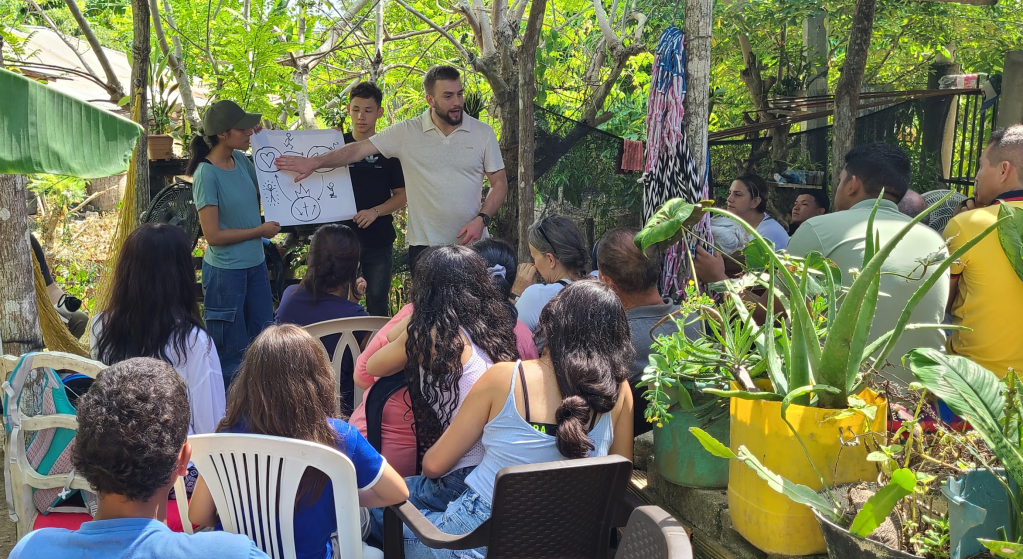
After the training sessions with the church, it was time for all of us to go out into the surrounding community and try out the training, in particular the training in healing and evangelism. We went door to door, asking people if they wanted prayer for healing (or anything else), sharing testimonies, and sharing the gospel if people were open to hearing it.
I need to pause to say that this was WAY out of my comfort zone. I have no trouble at all speaking in front of a thousand people, but ask me to go door to door and interact with a few in this manner and I get very anxious and feel quite awkward. Nevertheless, I did it anyway. I found that once I just focused on relating to people, loving them, and praying for them, I relaxed into it and began to shed the baggage I had carried about this kind of outreach (the sense or pressure that I’m trying to “sell” people something and close some kind of deal . . . that’s so wrong, and yet I don’t want to throw out the baby of genuine evangelism with the dirty bathwater of inauthenticity and reductionism).
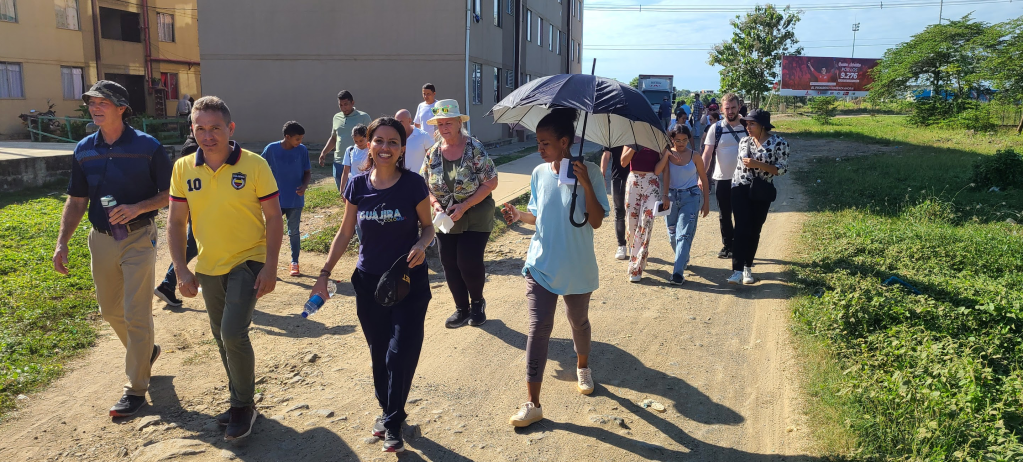
We went out in groups of about 5-6, typically two gringo missionaries, a Colombian translator, and 2-3 people from the local church. (I will need to say more about the translators later, in a future post. They did a lot more than translate; they did so much of the work!). At first, we (our team) would model the ministry and then, by about the third home or so, the local church people would take over and do the outreach themselves. It was so cool to see!
Typically, we would knock on a door or – if there was no door – we would simply call out “Ola!” (Hello!). The translator would often take the lead, explaining that we are missionaries and asking if there is anything they would like prayer for. Often, people would ask for prayers of blessing and protection over their families. People also commonly asked for prayer for healing of various illnesses and injuries. We would pray, sometimes witnessing God move powerfully to heal people (more on healings in future posts) and often bringing comfort, peace, and a deep sense of love and His presence.
This opened up an opportunity for conversation and one of us would usually share a testimony at this time, beginning simply by asking, “Can I tell you a short story?” We had been trained to give short testimonies (15 seconds to 2-3 minutes, depending on context) in order to share how Jesus has made a specific and tangible difference in our lives. Some chose to share something like a ‘Prodigal Son’ story of how they came to Christ and were saved from guilt, selfishness, self-harm, feelings of inadequacy or lacking purpose, and then how they instead came to be filled with Christ’s acceptance, love, confidence, belonging, and deep meaning for their lives. I often shared about the severe health crisis I suffered in 2019 and how God miraculously delivered me from it and restored me to full health and functionality (and how this has encouraged me to trust God not just for my body and life in the present, but for everything and for my eternal future).
Sharing such a story about Jesus would typically allow us to ask the question, “would you like to hear more about this Jesus who saved me (or healed me or transformed my life)?” Usually, people would say “yes,” and this would give us an opportunity to share the gospel with them briefly (with a simple tool called The Three Circles). We followed up by asking if they would be interested in coming to a Bible study, hosted by someone from the local church (the one we had just trained) in their home. Many said they would and gave their contact information.
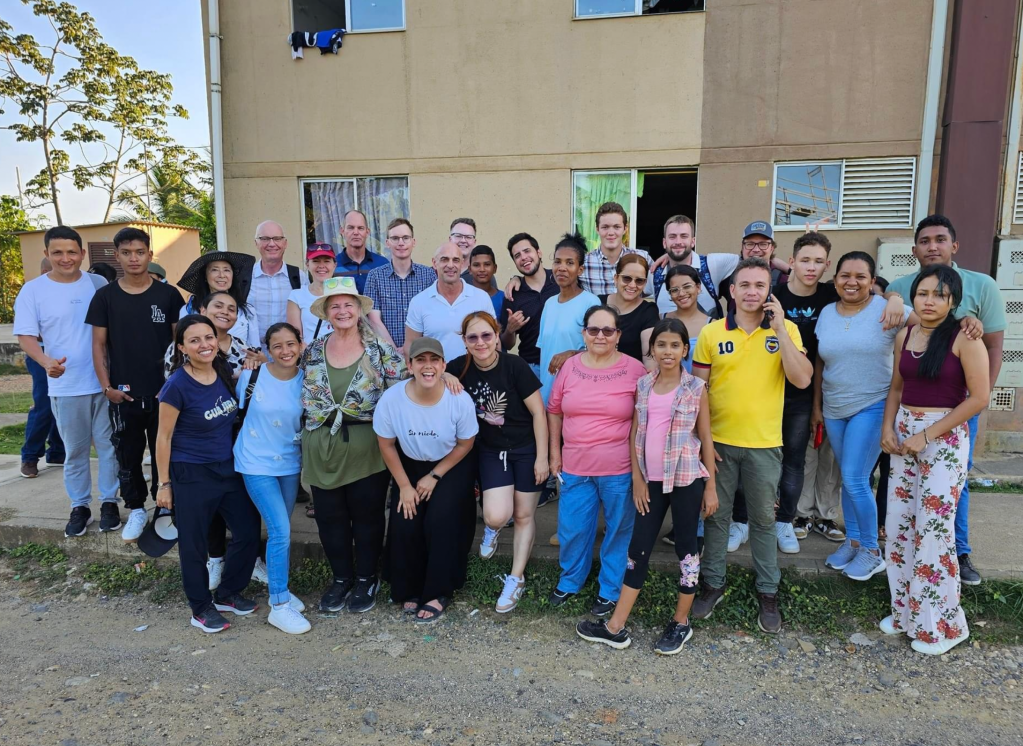
This outreach was quite an experience for me. I was amazed at the openness and readiness of the people to hear about Jesus and to respond in faith. I was blown away at how God answered prayer immediately and moved in ways I’m not accustomed to seeing. And I was forced to be stretched in ways I probably wouldn’t choose if left to myself and my own preferences, personality, and strengths (and weaknesses).
For example, I am a theologian. And theologians know that things concerning God and spiritual matters are complex. I tend to distrust simple explanations and tools, because they often lack nuance, holism, tension, and due consideration of questions, counter-examples, and critical interrogation. In its proper place (i.e., engaged critically within the primacy of faith), this can be a good thing. We need theology, we need to wrestle, we need to address the nuance and the intellectual questions that inevitably arise when we think about how Christian faith makes sense (or doesn’t) within our contemporary contexts. But we can also, unfortunately, over-complicate things. I might not ‘like’ a gospel tool because it’s inherently reductionistic in some way(s). But what I’ve realized is that if someone I meet really wants to know the good news about Jesus (right now!) and there isn’t much time to share it, my complexity can be detrimental because I struggle to know what to say. I’m at a loss. It is a good reminder that we need tools, but we also need to constantly revisit and rethink the tools, because they can become rote, formulaic, and non-contextual.
So, for me, being pushed out of my comfort zone was a very good thing. I saw and experienced many things on this trip that I struggle to explain or even understand. That’s o.k. God is bigger than my understanding. That doesn’t mean I’m giving up on the journey to understand, but it’s a good reminder of something I already know, something that has always informed the way I do theology but can easily be forgotten or subtly displaced: theology is not about establishing an indubitable faith built upon logical and empirical certainties (this isn’t faith at all, but foundationalism). Rather, theology always takes the form of faith seeking to understand itself. This is in keeping with how Augustine, Anselm, Julian of Norwich, Calvin, Bonhoeffer and all the greatest theologians have taught and modelled.
For me, God has used this trip and all these experiences to move deeply and subtly within my heart, to shift some things deep down, creating new openness to His movement in my life and in the lives of those around me. I don’t yet know where this is going to take me; I’ll have to just trust Him for that.

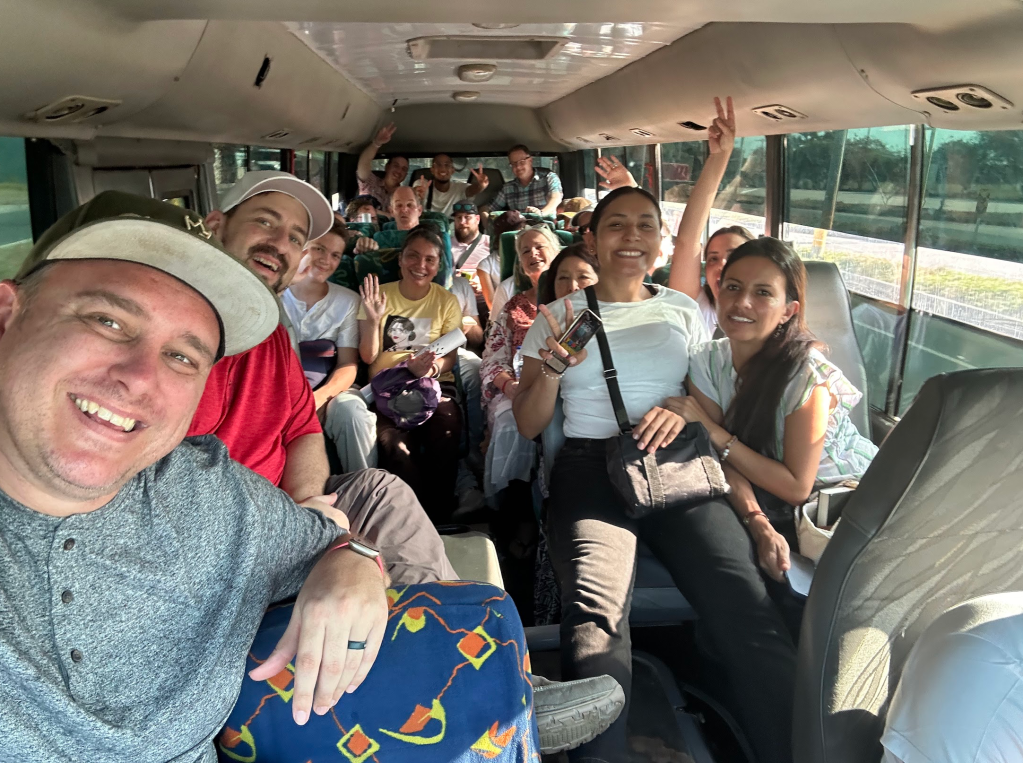
Dear Patrick,
I’m really enjoying reading and seeing your trip to Colombia My current pastors are from Colombia. I have grown spiritually so much under their ministry over the last six years as God has used them to be witnesses of His leading throughout their journey and to reveal the presence of His Spirit especially in their prayers. It’s so cool to think that God brings people across the continents to share His message – from Canada to Colombia and Colombia to Canada!
Thank you for sharing the pictures and the trip. I look forward to reading further instalments.
God bless you! Alison
>
Very cool! Thanks for sharing that, Alison!